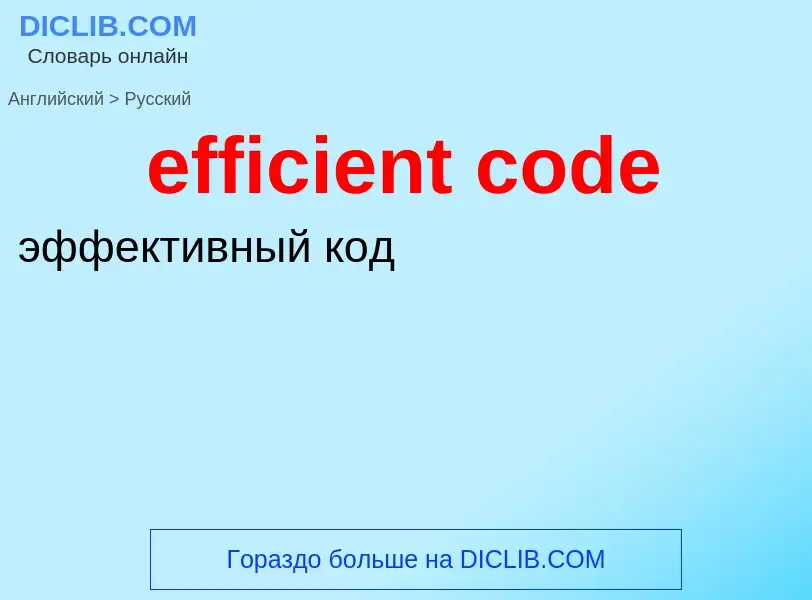Translation and analysis of words by ChatGPT artificial intelligence
On this page you can get a detailed analysis of a word or phrase, produced by the best artificial intelligence technology to date:
- how the word is used
- frequency of use
- it is used more often in oral or written speech
- word translation options
- usage examples (several phrases with translation)
- etymology
efficient code - translation to russian
Definition
Wikipedia
In computer science, algorithmic efficiency is a property of an algorithm which relates to the amount of computational resources used by the algorithm. An algorithm must be analyzed to determine its resource usage, and the efficiency of an algorithm can be measured based on the usage of different resources. Algorithmic efficiency can be thought of as analogous to engineering productivity for a repeating or continuous process.
For maximum efficiency it is desirable to minimize resource usage. However, different resources such as time and space complexity cannot be compared directly, so which of two algorithms is considered to be more efficient often depends on which measure of efficiency is considered most important.
For example, bubble sort and timsort are both algorithms to sort a list of items from smallest to largest. Bubble sort sorts the list in time proportional to the number of elements squared (, see Big O notation), but only requires a small amount of extra memory which is constant with respect to the length of the list (). Timsort sorts the list in time linearithmic (proportional to a quantity times its logarithm) in the list's length (), but has a space requirement linear in the length of the list (). If large lists must be sorted at high speed for a given application, timsort is a better choice; however, if minimizing the memory footprint of the sorting is more important, bubble sort is a better choice.


![A portion of the "[[Zimmermann Telegram]]" as decrypted by [[British Naval Intelligence]] codebreakers. The word ''Arizona'' was not in the German codebook and had therefore to be split into phonetic syllables. A portion of the "[[Zimmermann Telegram]]" as decrypted by [[British Naval Intelligence]] codebreakers. The word ''Arizona'' was not in the German codebook and had therefore to be split into phonetic syllables.](https://commons.wikimedia.org/wiki/Special:FilePath/Ztel2.jpg?width=200)
![The Napoleonic Code in the [[Historical Museum of the Palatinate]] in [[Speyer]] The Napoleonic Code in the [[Historical Museum of the Palatinate]] in [[Speyer]]](https://commons.wikimedia.org/wiki/Special:FilePath/Speyer (DerHexer) 2010-12-19 051.jpg?width=200)
